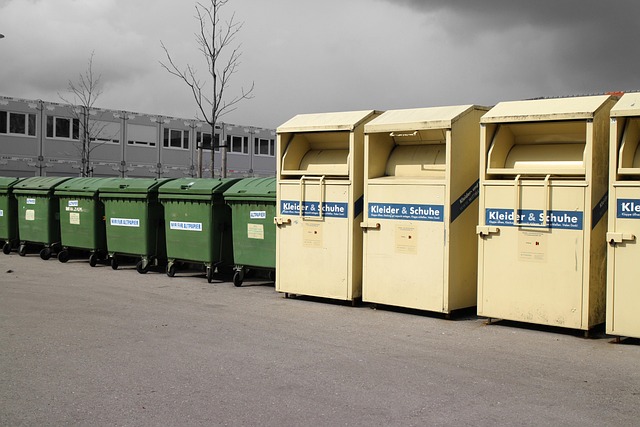Boston and New York enforce stringent IT asset disposal regulations to protect both data security and local environments. Compliance requires proper documentation, secure data wiping, and certified retirement of electronic waste (e-waste). Businesses must select reputable services that meet NAIT standards, physically destroy hard drives, and promote eco-friendly recycling while avoiding legal repercussions. Effective management involves robust tracking, data destruction, and adherence to evolving Massachusetts and New York guidelines.
In the heart of Boston’s tech hub, understanding IT asset disposal compliance is paramount. This guide delves into the intricate web of regulations governing electronic waste (e-waste) management in Boston and New York City (NY). We explore the legal framework shaping this sector, offering best practices for secure data destruction to safeguard sensitive information. By navigating strategies to enhance compliance during IT asset disposal, we highlight how tech companies can mitigate risks while promoting environmental protection.
- Understanding IT Asset Disposal Regulations in Boston
- The Legal Framework for Electronic Waste Management
- Best Practices for Secure Data Destruction in NY
- Strategies to Enhance Compliance During IT Asset Disposal
- Common Challenges and Solutions in Boston's Tech Sector
- The Impact of Proper IT Asset Disposal on Environmental Protection
Understanding IT Asset Disposal Regulations in Boston

In the vibrant metropolis of Boston, navigating IT asset disposal compliance is a crucial aspect of responsible business operations. The city, much like New York, has stringent regulations in place to ensure the secure and environmentally friendly removal of technological byproducts. These rules are designed to protect both the local environment and the data security of businesses and residents alike. Understanding these regulations is essential for any organization looking to dispose of IT assets in the Boston NY metropolitan area.
Compliance involves adhering to strict guidelines, including proper documentation, data wiping, and certified asset retirement solutions. Companies must ensure that their chosen IT equipment disposal services meet these standards, which are often more stringent than national averages. By availing themselves of specialized technological byproduct removal services, businesses can stay compliant while contributing to a greener, more secure digital landscape within the metropolitan area.
The Legal Framework for Electronic Waste Management

In the realm of IT asset disposal compliance, Boston and New York operate within a robust legal framework designed to safeguard environmental integrity and data security. Federal regulations, such as those established by the Environmental Protection Agency (EPA), govern the proper handling and disposal of electronic waste (e-waste). These guidelines ensure that businesses responsibly manage their end-of-life electronics, including IT assets like computers, servers, and mobile devices. Non-compliance can lead to significant legal repercussions, underscoring the importance of adhering to these standards.
The city’s focus on sustainable practices extends to specialized IT asset liquidation services Boston companies and recycling programs. Organizations like those based in New York have emerged to facilitate efficient data security in asset disposal. They employ secure methods to erase or destroy sensitive information from devices, ensuring that no remnants of confidential data remain. This meticulous approach not only protects businesses from potential legal issues but also contributes to a greener environment by diverting electronic junk (IT junk recycling programs) from landfills.
Best Practices for Secure Data Destruction in NY

In the realm of IT asset disposal, Boston and New York cities have stringent regulations that must be followed to ensure secure data destruction. When disposing of electronic devices, businesses should adopt best practices to safeguard sensitive information and minimize environmental impact. One crucial step is implementing robust data wiping protocols, ensuring all hard drives and storage media are securely erased or physically destroyed. This process should comply with standards set by the National Association for Information Technology (NAIT) to prevent unauthorized access to deleted files.
Additionally, businesses can contribute to sustainable technological byproduct recycling by partnering with reputable e-waste management companies. These organizations specialize in responsible information technology garbage collection and offer electronic device retirement programs that enable proper disposal or repurposing of assets. By adhering to these practices, businesses in Boston and New York can ensure their IT asset disposal methods meet legal requirements while promoting environmental stewardship through the efficient recycling of technological byproducts.
Strategies to Enhance Compliance During IT Asset Disposal

Staying compliant with IT asset disposal regulations is paramount for businesses in Boston and New York. To ensure adherence to laws like the MA Electronic Waste Management Act, companies should first implement a robust asset management system that tracks all hardware from acquisition to end-of-life. This involves utilizing specialized software to catalog equipment and their sensitive data, facilitating responsible redistribution or secure IT asset liquidation services Boston residents rely on.
Additionally, employing safe data sanitization methods is crucial to protect against privacy breaches. This process ensures all data stored on devices is permanently deleted, preventing unauthorized access. Following these best practices, coupled with efficient e-waste management Boston facilities offer, can help businesses minimize environmental impact and maintain legal integrity during IT asset disposal processes.
Common Challenges and Solutions in Boston's Tech Sector

In Boston’s thriving tech sector, IT asset disposal presents unique challenges. One prominent issue is the proper management of electronic waste, or e-scrap, which often contains hazardous materials. To address this, many companies are turning to specialized e-scrap recycling centers NYC for secure and environmentally responsible disposal methods. By partnering with these facilities, tech businesses can ensure that their IT assets are recycled according to stringent regulations, preventing toxic substances from entering the broader environment.
Another challenge is ensuring compliance with constantly evolving laws and regulations related to IT asset disposal Boston NY. To stay ahead, organizations implement robust electronic asset recovery NYC programs that involve detailed tracking of equipment throughout its lifecycle. This includes proper documentation, data destruction, and secure re-sale or recycling channels. By adopting such initiatives, companies not only comply with legal requirements but also contribute to a more sustainable digital future in the heart of Boston’s tech hub.
The Impact of Proper IT Asset Disposal on Environmental Protection

Proper IT asset disposal plays a significant role in environmental protection, especially with the ever-growing e-waste problem. Boston and New York, as major tech hubs, produce substantial volumes of electronic waste annually. Responsible disposal involves not just recycling but also ensuring data security and compliance with local regulations, such as Massachusetts’ strict old tech disposal guidelines.
Efficient e-waste management specialists in Massachusetts can facilitate the process by providing eco-friendly solutions for disposing of obsolete electronics. These professionals ensure that hazardous materials are handled and disposed of safely, preventing them from ending up in landfills where they can contaminate soil and water. By choosing reliable recycled electronics suppliers, businesses can contribute to a sustainable future while adhering to IT asset disposal regulations in both Boston and New York.
In conclusion, navigating IT asset disposal compliance in Boston or New York requires a thorough understanding of local regulations and best practices. By adhering to the legal framework for electronic waste management and implementing secure data destruction techniques, organizations can ensure their operations remain compliant while minimizing environmental impact. Addressing common challenges through strategic solutions is key to enhancing overall adherence during IT asset disposal processes, ultimately contributing to a more sustainable tech sector in both cities.














